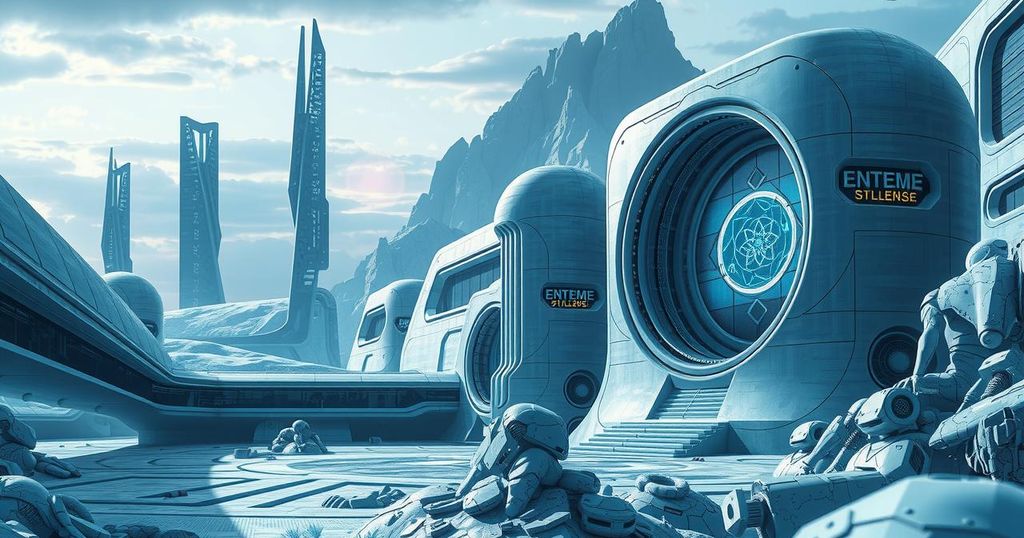AI
ALTMAN, ARTIFICIAL INTELLIGENCE, AUDIBLE, BUSINESS, CALIFORNIA, CULTURE, DEEPMIND TECHNOLOGIES, DEMI, GROK, HAWTHORNE, KAREN HAO, MARS, MENTAL HEALTH, MUSK, NORTH AMERICA, PENGUIN PRESS, SAM ALTMAN, SILICON VALLEY, SOCIAL MEDIA, UNITED STATES, VENTURE CAPITAL, Y COMBINATOR
Liam Kavanagh
0 Comments
Navigating the Future: Karen Hao’s “Empire of AI” Unravels Silicon Valley’s AI Debate
Karen Hao’s “Empire of AI” explores the complex relationship between AI experts like Sam Altman and Elon Musk, emphasizing Musk’s warnings about AI as a significant existential threat. The book contrasts high-profile meetings with personal reflections on the moral dilemmas of advanced technology, setting the stage for a deeper conversation around AI’s future implications.
In a revealing look at the inner workings of artificial intelligence and its implications for humanity, Karen Hao’s new book “Empire of AI: Dreams and Nightmares in Sam Altman’s OpenAI” dives into the high-stakes discussions among Silicon Valley’s elite. At the center of this narrative is Sam Altman, a pivotal figure in AI advocacy, and Elon Musk, who, despite his own ventures into AI, starkly warns of its dangers. While promoting xAI and the Grok chatbot, Musk now refers to artificial intelligence as perhaps the “biggest existential threat” to humanity.
Set against the backdrop of summer 2015, the book opens with an exclusive dinner hosted by Altman. Attendees were a mix of tech titans, eager to explore the crossroads of AI and our future. Musk, arriving fashionably late, had already formed a deep respect for Altman. The Y Combinator president’s notable achievements and ambitions caught Musk’s attention early on. Their conversation appeared to resonate, leading Musk to later recount in legal struggles how Altman seemed to echo his own concerns, effectively securing his trust on the pressing issues swirling around AI.
For Altman, meeting Musk was a dream come true—a childhood hero in tech. After an awe-inspiring visit to SpaceX’s massive facilities, Altman was struck by Musk’s unwavering belief in humanity’s capability to colonize Mars. He even reflected, “I left thinking ‘huh, so that’s the benchmark for what conviction looks like.'” Still, the ominous reality surrounding AI shadowed their discussions; Musk became increasingly preoccupied with potential risks.
In 2012, Musk’s unease materialized during a meeting with Demis Hassabis, head of DeepMind. Their conversation turned dark when Hassabis theorized that humans could be at risk from superintelligent AI. That revelation hit Musk hard. Unlike his Martian plans, which he thought could provide an escape, AI might just follow us into the stars. Consequently, he backed DeepMind with a significant investment—not as a show of faith, but rather as a cautious measure.
The tension around AI wasn’t limited to hushed dinner conversations. Musk found himself in contentious debates, notably with Google co-founder Larry Page at his birthday celebration in Napa Valley. Page saw advanced AI as merely the next step in human evolution, while Musk vehemently disagreed, branding the situation as disastrous. Page even called Musk a “specist” for, as he saw it, undermining nonhuman intelligence.
This ongoing tension fanned Musk’s fire. He began to openly declare AI as an escalating threat, famously stating at MIT that it could be the “biggest existential threat” to humanity—almost invoking a horror scene with the phrase “summoning the demon.” His obsession grew, leading him to explore writing a book on the subject, a deep dive into threats potentially leading to extinction. At a Stanford salon, a young researcher named Timnit Gebru questioned him about his AI fears in relation to climate change, which she deemed a more pressing issue. Musk’s retort was stark: “Climate change is bad, but it’s not going to kill everyone; AI could render humanity extinct.”
In Karen Hao’s “Empire of AI: Dreams and Nightmares in Sam Altman’s OpenAI,” the exploration of AI unfolds dramatically through conversations between visionaries like Sam Altman and Elon Musk. The pressing warning of AI’s existential dangers bounces around Silicon Valley, merging passion for technology with an underlying fear of catastrophe. Musk’s mounting obsession with AI signals a palpable fear that resonates in today’s tech landscape — a stark reminder of the fine line between innovation and peril.
Original Source: www.cbsnews.com




Post Comment